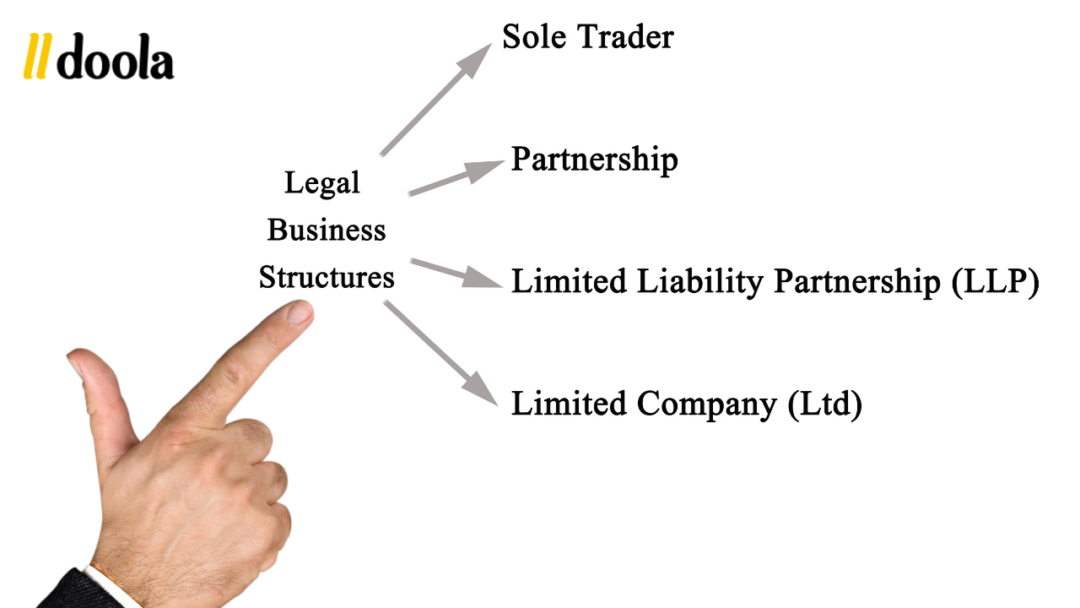
Starting a car detailing business can be a fun and lucrative opportunity. But starting a business like this can have its challenges, and it’s important to have a clear plan to follow if you wish to see it succeed.
In this guide, we’ll take you step-by-step through starting a car detailing business, from creating a business plan to marketing your services.
Whether you’re a seasoned auto enthusiast or just beginning, this guide provides the essential information needed to launch your car detailing business.
Step 1: Get Hands-On Experience
Getting hands-on experience in the car detailing field can help you understand the fundamentals of car detailing, which include cleaning, polishing, waxing and more.
Gaining practical experience can also help you determine what services you will offer, what equipment you will need and what products you will use.This is also an opportunity to improve your customer service skills and understand how to deal with the different needs and preferences of your customers. Hands-on experience can give you the skills and confidence you need to start your car detailing business.
Step 2: Write Your Business Plan
Your business plan should provide a detailed overview of your goals and business, describing your unique selling proposition and target audience.
It should also include a financial plan that accounts for your business startup expenses such as equipment, supplies and products. In addition, your plan should outline your marketing strategy, such as advertising on social media or networking at local car events. You’ll also need to specify what types of services you’ll offer, such as exterior washing, waxing and polishing or interior cleaning services, which include steam cleaning, upholstery and carpet cleaning.
With a well-developed plan, you can effectively manage daily operations with tangible end goals in mind.
Name Your Business
The name of your car detailing business is influential to its success as it sets you apart from competitors and shapes your brand image. When selecting a name, you should keep in mind some essential factors, such as length, ease of remembering, and simple spelling.
It should also reflect the nature of your services, personality and approach to building an authentic brand. Remember that originality is key when starting a business, so make sure you don’t use a name already used by another company.
By adopting these components, you can create a unique and memorable name, establishing your brand and making it easier to attract customers.
If you’re feeling stuck on a name, here’s a list of 250 LLC name ideas.
Pick the Perfect Location
Choosing the location for your car detailing business can determine whether or not it will succeed. It’s crucial to research the accessibility of the location and the local demographics to ensure that your business can be easily reached.
The size and shape of the space also matter as they will determine the number of cars you can service at any given time.
You also need to consider state regulations for starting a business with a physical location as each state has unique requirements for operating businesses legally. This may include securing a zoning permit or a business license, which will not only help you avoid litigation but also gain legitimacy as a serious business entity.
Determine Your Rates
When deciding the rates for your car detailing services, it’s important to consider several factors to ensure you set a reasonable price that is competitive and profitable.
Your experience, qualifications, labor costs, materials and the local market demand can all determine the scope of services you provide.
By researching your competitors, you can further clarify pricing in your area — and take into account any unique services or add-ons you may offer as well.
Step 3: Decide on Your Business Structure
Next, you will want to choose the business structure that best suits your needs and goals. This is a major decision because it will determine how your business will be operated, managed and taxed.
Below you will find a brief explanation of common business structures along with their advantages and disadvantages. Need to quickly find out what type of entity best suits your business? Get started by answering a few questions here.
Sole Proprietorship
A sole proprietorship is a business structure where a single person owns and runs the business. One of its primary benefits is its simplicity in management, with fewer regulatory obligations than other business entities.
Despite these advantages, a significant drawback is that the owner assumes complete liability for all debts incurred by the business, putting their personal assets at risk in the event of any legal or financial issues.
General Partnership
A general partnership is a business structure where two or more people jointly own and operate the business. Although it’s an easy and convenient way to launch a business with fewer regulatory requirements, potential conflicts among partners and the unlimited liability for business debts can have significant downsides.
It’s significant that partners have a well-defined agreement in place to mitigate the risk of disputes and ensure a prosperous partnership.
Limited Partnership
A limited partnership is a type of business entity that combines the participation of general partners and limited partners. This structure offers the advantage of outside investors providing capital without relinquishing control of the business.
But the potential for disputes between multiple partners and the need for formal agreements and arrangements can make the structure more complex than a sole proprietorship or general partnership.
Limited Liability Company
A limited liability company (LLC) is a unique business structure that combines aspects of a corporation and a partnership. Members or owners enjoy the same protection from liability limitations as corporations while retaining the tax advantages and flexibility of a partnership. LLCs are advantageous because they protect members’ personal assets and provide tax flexibility.
But forming and operating an LLC can involve additional regulations and formalities compared to a sole proprietorship or general partnership. In addition, transferring LLC ownership can be difficult, and the number of members may be limited by regulations.
Corporation
A corporation is a legal entity separate from its shareholders that offers several advantages, such as limited liability protection, the ability to raise capital and the ease of transferring ownership.
However, corporations also bring some challenges, such as double taxation of profits, a complex and formal organizational structure and additional regulations and compliance requirements. Establishing and managing a corporation can also be more costly and time-consuming than other business structures.
Step 4: Register Your Business
Depending on your business structure, you may need to register with the state or local government. This may include obtaining a business license, getting a registered agent and filing any necessary documents such as the articles of organization or operating agreement.
Registering your business ensures that you comply with all applicable regulations and laws in your industry—protecting your business from potential legal issues.
This also provides credibility to your business and may make it easier to secure financing, attract customers and establish a positive reputation.
Register your business in less than 5 minutes.
Step 5: Obtain Licenses and Permits
The types of permits and licenses you need may vary depending on your business’s location.
Typically, you will need an auto detailing license and a business license. You may also need to comply with other regulations, such as building, environmental and zoning codes.
Check with your local government to ensure you get all the necessary licenses and permits before starting your business.
By obtaining all the necessary licenses and permits, you can operate your business legally, protect yourself from liability, and develop credibility as a serious business entity.
Step 6: Plan Your Finances
Once you have your business plan and all the legal requirements covered, the next step is to set up and plan your finances. This involves creating a budget, deciding on payment methods, setting up bookkeeping systems and securing funding.
It’s important to stay organized and monitor your finances regularly to ensure that your business is profitable and sustainable in the long term.
Below are some tips on how to do that.
Open a Business Bank Account
Opening a business account allows you to separate your personal and business finances, making it easier to manage your business finances and keep them in order. When opening a business bank account, it’s important to research the different online banking options and interest rates to find the best account for your needs.
This is our top bank recommendation for international founders.
With a dedicated business account, you can monitor your finances, build a credit history, and ensure your business runs efficiently.
Securing Financing
You can finance your business in several ways, including traditional bank loans, small business grants, crowdfunding and personal savings.
The amount of money you can receive with a business loan will greatly depend on your chosen business structure. Choosing a business structure such as an LLC is a great option to secure financing. It adds credibility to your company and is seen as a legitimate business entity by the IRS.
Carefully consider your financing options and select the ones that align with your business goals and financial situation.
Step 7: Get the Right Insurance
Having the appropriate insurance policy is crucial for financial protection and peace of mind if something goes wrong. This type of insurance policy should include liability coverage for third-party property damage or personal injury that may occur while providing auto care services.
It should also cover damage to your property, including car care equipment and vehicles you use for your business. The appropriate insurance policy will also ensure that you are legally protected in the event of any lawsuits or litigation.
Step 8: Hire Your Team
As you begin to scale your business, you will want to hire reliable and capable employees, which can be like finding a needle in a haystack. But with the proper training and leadership, you can find reliable employees who are happy to work hard under your roof.
To hire multiple employees, you will need to apply for an employer identification number (EIN) for your employees. This will help you keep your finances in compliance with all the company’s and your employees’ tax regulations.
Step 9: Market Your Services Online
Perhaps the most important step is to market your services. This can be done in a variety of ways, but having a concrete content strategy is a great way to attract customers. Nowadays, a website is more or less mandatory to connect with your target audience and is a good reference point for all of your marketing efforts.
Building an online presence through social media platforms like TikTok, Twitter (X) and Instagram is another effective way to connect with potential clients and let them know about your services.
These online marketing strategies can help your business stand out from the crowd and increase your reach, attracting new customers and drive sales.
Launch Your Car Detailing Business With doola
Starting a car care business can be lucrative and exciting, especially if you have a passion for cars. But there can be many hurdles you need to overcome to make your business successful.
By following the nine steps above, you can confident that you are on your way to starting a profitable and compliant business. If you need additional help with your finances, we offer excellent accounting services to help you organize, update and manage your finances at an affordable price.
If you have specific questions you need help with, grab a free consultation with one of our doola experts.
FAQs
How much does it cost to start an auto detailing business?
The cost to start an auto detailing business can vary widely, but it typically ranges from $2,000 to $50,000 depending on factors such as location, equipment and marketing expenses.
Can you make a living off car detailing?
Yes, a car detailing business can become a lucrative and profitable business.
How many cars does a detailer service per day?
Depending on the size of your business and the number of employees, many detailers will service four to six cars per day.
How do I get customers for detailing?
You can get customers for detailing in a number of ways, including digital marketing, word of mouth and local advertisements.








